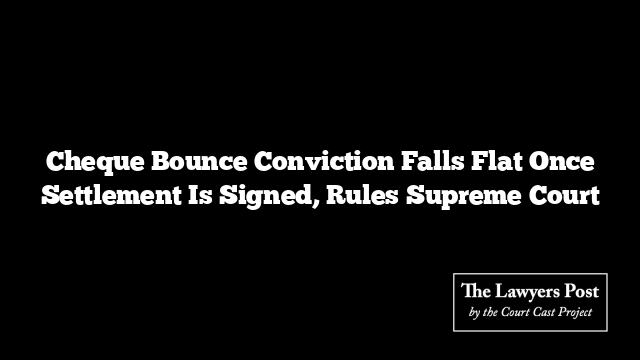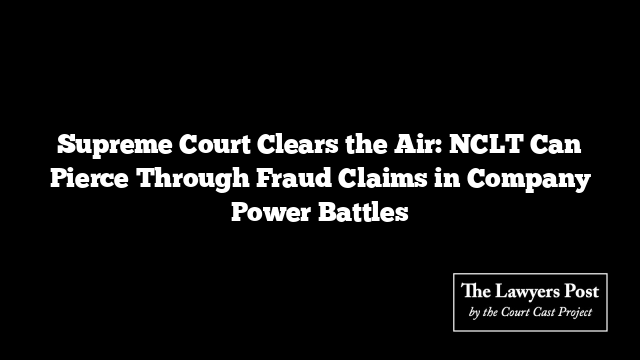A conviction for cheque dishonour cannot survive once the complainant and the accused shake hands over a settlement and the dues are cleared in full, the Supreme Court has ruled.
The case arose after a man convicted under Section 138 of the Negotiable Instruments Act sought relief on the strength of a compromise deed signed after his revision plea was dismissed. Despite the complainant confirming that the defaulted amount had been fully paid and accepted, the High Court had refused to alter its earlier order.
The Supreme Court disagreed, overturning the conviction and stressing that once a complainant willingly acknowledges receipt of the full settlement amount, continuing with the prosecution serves no purpose.
“Proceedings under Section 138 of the NI Act cannot hold water once a complainant voluntarily accepts the default sum in full and final settlement,” the bench of Justices Aravind Kumar and Sandeep Mehta observed, pointing to Section 147 of the Act, which makes such offences compoundable.
The Court leaned on its earlier stance in Gimpex Private Limited v. Manoj Goel (2021), underscoring that parties who voluntarily enter into a compromise cannot later pursue parallel criminal proceedings.
In clearing the accused, the Court reaffirmed that settlements in cheque dishonour cases carry decisive weight and must be honoured in both spirit and law.




